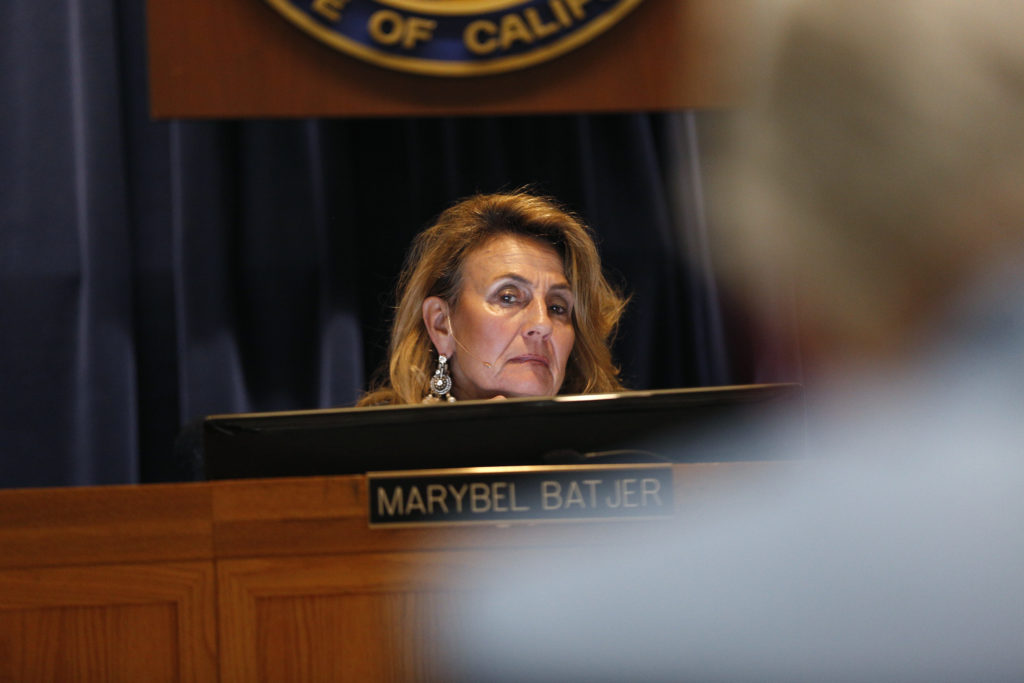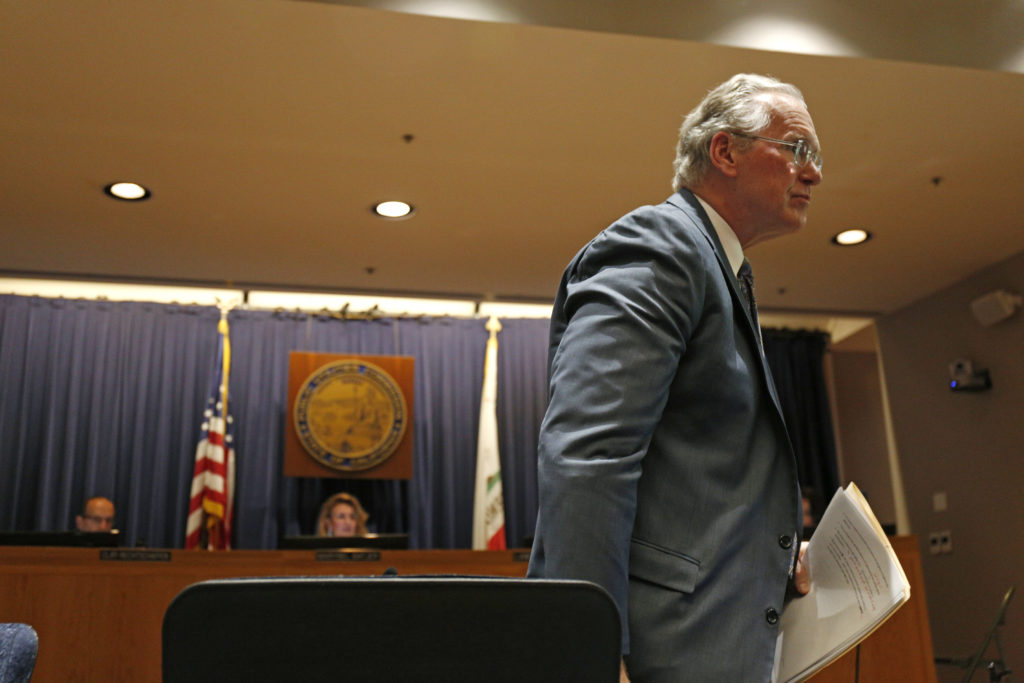The California Public Utilities Commission (CPUC) called an emergency meeting on Friday, Oct. 18, 2019, to question Pacific Gas and Electricity (PG&E) CEO Bill Johnson and other top executives about the company’s ability to safely shut off the state’s power.
On Oct. 7, amid ongoing dangerous weather conditions, PG&E–whose faulty electrical lines caused the 2018 Camp Fire that killed 85 people–shut off power to more than 2 million California residents “for safety.” The public utility commissioners–whose job it is to regulate utilities, protect consumers and ensure safe and reliable utility infrastructure–accused PG&E of failing to address the immediate needs of the public during the shutoffs that “could have led to more deaths than the fires themselves” if they had lasted 24 hours more. Johnson notified the commissioners that PG&E would likely continue the shutoffs for another 10 years.

During the meeting in San Francisco, state commissioners questioned the company’s ability to provide outreach, their lack of infrastructure, their communication failures and the functionality of their website and outage maps. CPUC President Marybel Batjer addressed the top executives, saying “The impact of the scope and scale of the power shut off to lives, businesses and the economy cannot be overstated,” and added, “You’ve been in this business for 41 years. You guys failed on so many levels, on pretty simple stuff.” Commissioners asked to see specific plans for providing better outcomes during future shutoffs and emphasized the urgency of implementing those plans.
“I hear skepticism about whether the shutoff was truly necessary, and whether the scope was too large. Skepticism that we did this to save our own skin rather than for public safety. The fact is that we did this for one reason, and that is safety. The only thing we cared about in all of this was the safety of our customers, our employees and the people of California,” Johnson said.

Batjer criticized the private utility company for not having an adequate plan for providing alternate power for “residents at critical facilities such as hospitals and residents who need electricity for medical equipment, basic mobility or storage of medicine.” Her concerns were echoed by disability rights activists present for the meeting, who waited hours to deliver public comments and were largely dissatisfied by the company’s response to their concerns.
Marissa Shaw of Richmond said during a public comment that she, despite being on medical baseline, was not notified in any way about the shutoffs and demanded community resource centers be near public transportation.
“Currently I live in a Section 8 development and my landlord pays the PG&E. … It’s part of my rent. The reason why I mention that is because people like me who live in different types of housing will wind up through the cracks unless something is done,” Shaw said.
Deborah Kaplan, who uses an electric wheelchair, bed, and ventilator, and requires the use of an elevator, explained that even if she was notified “it isn’t all that helpful” without alternative power sources.
“If this is going to be a reality that we’re going to have to get used to, then people who rely on power for survival need to have backup,” she said.
Newly appointed CEO and president of PG&E utility operations, Andrew Vesey, broadly outlined the company’s improvement plan, which includes: scaling up I.T. resources and call centers, improving their coordination with local and state governments, and improving the information content of their outage maps. He defended the shutoffs, saying “we operate an electric system in a growing tinderbox” and admitted they did not anticipate so much web traffic nor all the local needs.
When asked about the $100 rebates requested by Gov. Gavin Newsom for customers whose power was unnecessarily shut off, Vesey said the company is “not committed to providing them” but is open to further discussion.
During closing statements, Martha Guzman Aceves stressed the importance of coordinating with local governments and suggested a future board of executives would “better reflect the demographics of the communities most impacted by the shutoffs.” Johnson admitted the board was “quickly assembled” and he hoped that “eventually the board will get there.”
